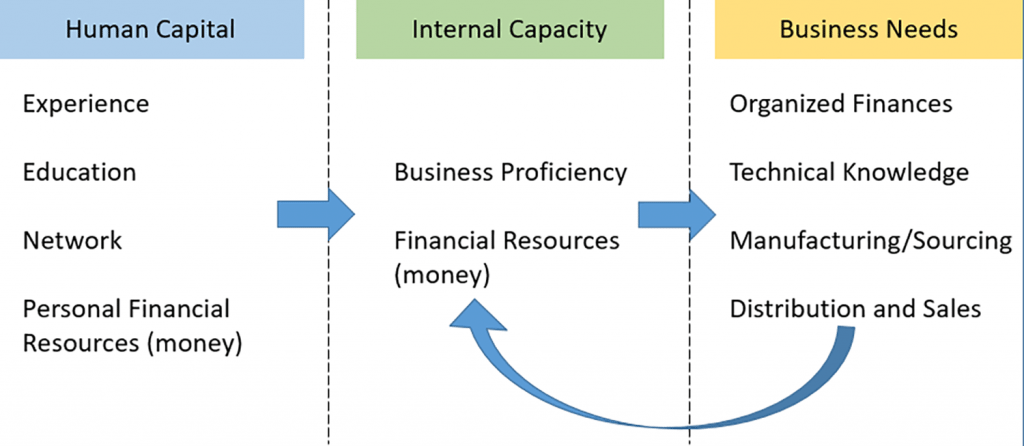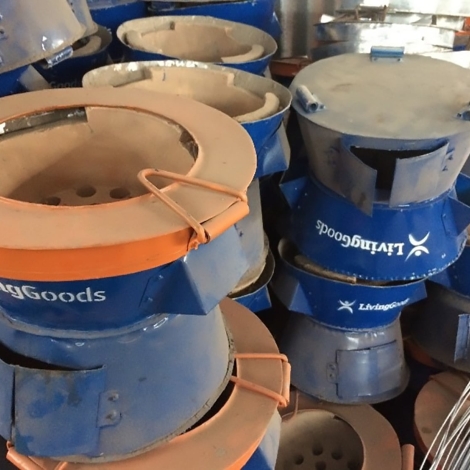Billions of people around the globe use solid biomass to fuel their daily cooking needs[1]. Most traditional cooking practices, such as three stone fires, produce hazardous emissions that damage the health of the users and contribute to global air pollution. Improved cookstoves (ICSs) have great potential to reduce the negative effects of cooking emissions through efficient stove designs and alternative fuels. However, despite the high potential for social impact, ICS manufacturers and distributors struggle with low margins, poor customer adoption, and lagging business growth[2]. This is particularly true in Uganda, where the estimated market for clean cookstoves is 6 million but the sector has few large-scale companies[3].
Why is that the case? To answer that question, my colleagues at MIT D-Lab’s Off-Grid Energy group and I conducted a research study of Ugandan ICS businesses. The answers, we believe, might facilitate the growth of the ICS market, and ultimately user adoption.
We conducted case studies of five clean cookstove companies: Appropriate Energy Savings Technology, Awamu Biomass Energy, Green Bio Energy, Humura Investments, Ltd., and UpEnergy. Our goal was to analyze how, if at all, the growth of these businesses depended upon the expertise and resources of the founding team. Additionally, we looked to see if there were differences in company opportunities and growth rates between international and local founders. For an early stage business, the founding team is critical to company growth and survival, and insight into how different founding teams perform and what strategies they take can assist both ICS companies and interested stakeholders in growing ICS businesses. The result of our study is an analysis of potential low-risk pathways for ICS business growth based on the composition of the founding team (full report and executive summary) and a series of five in-depth case studies (pdf) on Ugandan ICS businesses.
We hope that with this knowledge ICS business owners will be better prepared to bring their ventures to scale, and supporting NGOs, investors, and government agencies will be better equipped to facilitate the scaling process.
Impact of Risk Minimization:
Funding Can Favor International Founders
Companies that demonstrate a high level of expertise in businesses operations (such as financial management, manufacturing, and distribution and sales), and a low level of risk, are more competitive applicants for large contracts and grants. Securing contracts and grants increases financial resources, which helps the business to grow, which in turn increases their competitiveness in gaining future contracts and grants. We found that this cycle positively affects international founders, who may begin their venture with a high level of internal capacity because of the higher level of capacity-building opportunities in Western society. Local founders, who may not have extensive business proficiency or have the support to increase their knowledge, are often unable to participate in this positive feedback cycle.
Business Complexity, Internal Capacity, and Minimizing Risk

Human capital contributes to a company’s internal capacity (business proficiency and financial resources) through the employee’s personal and professional experiences, education, network, and personal financial resources. Internal capacity is necessary to meet the functional needs of the business (organized finances, technical knowledge, product sourcing, distribution and sales). Revenue from sales can also increase financial resources.
We determined that scaling an improved cookstove (ICS) company without exposure to high levels of risk requires the maximization of internal capacity and the minimization of business complexity.
A company’s internal capacity is the ability to address the business’ needs, and is comprised of:
- Business proficiency (expertise in financial management, product technology, product sourcing and/or manufacturing, distribution, and sales)
- Financial resources (revenue, grants, equity investment, debt financing, and carbon financing)
Business proficiency is gained through the human capital of the company, which includes personal experiences, education, and professional networks, all of which can be leveraged to increase business proficiency and financial resources. A high level of internal capacity allows a company to safely build out its operations and scale in size, or to stabilize existing operations. When looking to scale, it is critical that a company have both business proficiency and financial resources. For example, to sell and distribute ICSs at scale a company has to have expertise in how to accomplish distribution and sales and enough money to act on that knowledge.
Business complexity is the number and complexity of operations that comprise the company’s business model. We found that leaders of ICS companies often choose (wisely) to reduce business complexity while scaling in order to minimize risk and the number of potential hazards that could cause an operational upset. Mechanisms to reduce business complexity include:
- Outsourcing part of the cookstove manufacturing and/or distribution processes (i.e. not vertically integrating)
- Relying on contract labor that can fluctuate with customer demand
Reducing distribution, sales, and marketing are also potential mechanisms for reducing business complexity, but potentially hinder sales and revenue growth by reducing customer awareness.
Recommendations for Scaling an Improved Cookstove Business
When looking to grow ICS companies in Uganda, founders, managers, and organizations looking to support these businesses, should assess the company’s expertise in business operations and its business complexity. From that assessment, the identification of where business complexity exceeds internal capacity (i.e. in finances, product sourcing, distribution and sales), and whether expertise or financial resources would facilitate growth, can inform strategic decision-making. Very often the companies will require both at the same time. In those scenarios it is important to exercise judgment on the ability of the company to efficiently utilize funding without business proficiency. It is very possible that the external funds without additional business skills will not have much impact. Company leaders without strong business proficiency should seek to gain additional capacity before looking to increase business complexity and grow.
Methods of building business proficiency include:
- Participating in external business training programs (ex: accelerators, incubators, etc.)
- Implementing internal business training programs (ex: on-boarding training for new employees)
- Utilizing Online resources on business practices and education
- Hiring experienced employees
- Participating in local business chapters and online communities to attract attention and support from ecosystem enablers (ex: joining a clean cooking association, maintaining a company website, and creating an online presence)
Organizations supporting the ICS sector could have a great impact by increasing the number of capacity-building services available to these leaders.
Some examples of potentially beneficial programs include:
- Training/mentoring programs
- Technical support
- Peer-to-peer knowledge sharin
- Incubators/Accelerators
[1] Differ. (2012). A rough guide to clean cookstoves.
[2] Global Alliance for Clean Cookstoves. (2015). Increasing Investment in the Clean Cooking Sector.
[3] World Bank. (2015). Project Information Document (Uganda Clean Cooking Supply Chain Expansion Project No. PIDC17014).


nice thinking
clean cook stoves production in uganda.